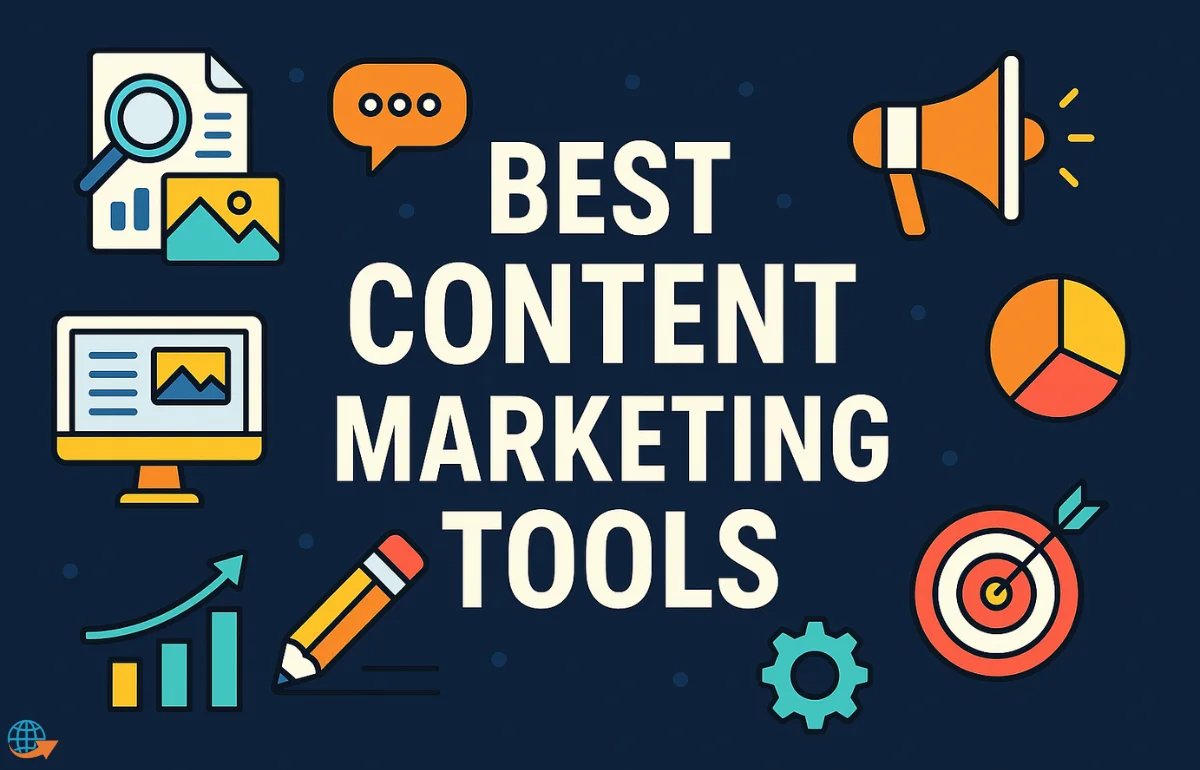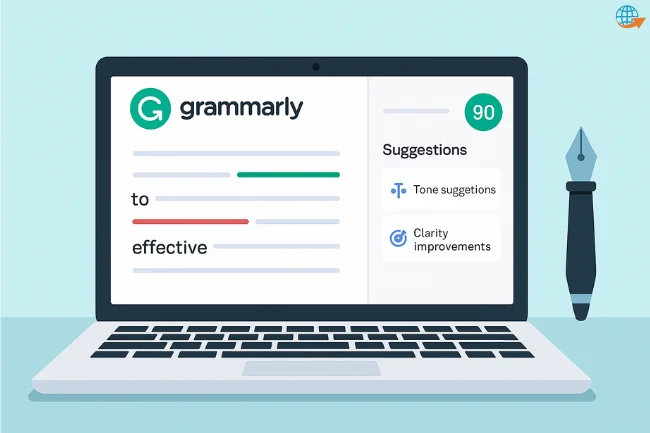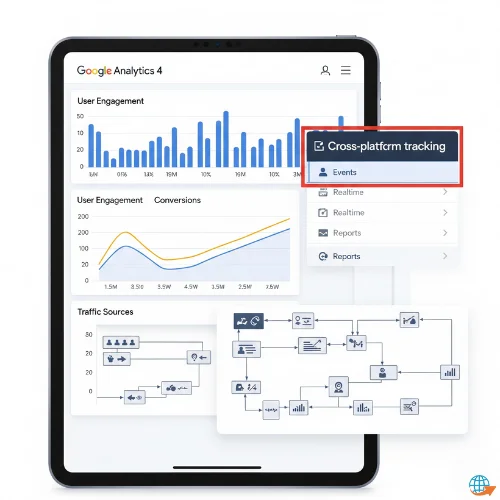In just ten years, content marketing has gone from basic storytelling to a multi-platform, analytics-heavy practice. From blog posts to videos, social media to email newsletters—marketers now rely heavily on a wide range of tools to streamline, scale, and optimize their efforts. The best content marketing tools today go far beyond basic scheduling. They help brands research, plan, create, distribute, and analyze content like never before.
In this guide, we’ll explore the top tools content marketers are using in 2025, what each one does best, and how they fit into different stages of your content marketing workflow.
What Makes a Content Marketing Tool “The Best”?
Not all tools are created equal. The best content marketing tools share a few common traits:
-
Efficiency: They save time and reduce manual effort.
-
Integration: They connect seamlessly with other platforms.
-
Insights: They provide valuable data that informs strategy.
-
Ease of Use: They are intuitive, even for non-technical teams.
-
Scalability: They grow with your content needs.
With that in mind, let’s break down the top platforms across different content marketing functions.
Top Tools for Content Research and Planning
1. BuzzSumo
BuzzSumo remains one of the most powerful tools for content discovery. It allows marketers to see what topics are trending, which headlines are performing best, and who the key influencers are in any niche.
Best For: Topic research, competitive analysis
Standout Feature: Real-time content alerts and viral content tracking
Source: https://buzzsumo.com/
2. AnswerThePublic
Visualizes search queries people are making across the web. This tool helps marketers understand the actual questions people ask around a keyword.
Best For: Long-tail keyword ideation
Standout Feature: Keyword cloud clusters grouped by questions, prepositions, and comparisons
Top Tools for Content Creation and Optimization
3. Grammarly
Content creators use Grammarly to write cleaner, more professional content. Beyond grammar checks, its premium version provides tone suggestions and clarity improvements.
Best For: Blog writing, email copy, social content
Standout Feature: Real-time AI writing feedback
4. Surfer SEO
A content optimization platform that helps writers align their content with top-ranking pages. Surfer analyzes SERPs and provides exact recommendations for headings, keywords, and word counts.
Best For: SEO-focused content creation
Standout Feature: SERP analyzer and content score grading
Source: https://surferseo.com/blog/
5. Jasper (formerly Jarvis)
An AI-powered writing assistant that helps speed up first drafts, ad copy, product descriptions, and more. Jasper can generate long-form content in a fraction of the usual time.
Best For: High-volume content needs
Standout Feature: Pre-trained templates for different content formats
Top Tools for Content Distribution and Promotion
6. Buffer
Buffer makes it easy to schedule and publish content across multiple social media platforms. Small to mid-level teams will find it especially accessible and easy to navigate.
Best For: Social content scheduling
Standout Feature: Clean dashboard with post previews and analytics
7. Mailchimp
While known for email marketing, Mailchimp also supports automated campaigns, audience segmentation, and A/B testing, making it a solid tool for distributing newsletters and lead magnets.
Best For: Email marketing campaigns
Standout Feature: Visual campaign builder with smart recommendations
Source: https://mailchimp.com/resources/
Top Tools for Analytics and Performance Tracking
8. Google Analytics 4 (GA4)
Still the go-to analytics platform for content marketers. GA4 tracks user journeys, measures engagement, and ties content consumption to business goals.
Best For: Tracking content ROI
Standout Feature: Custom events and cross-platform data tracking
9. Semrush
Semrush goes beyond SEO. It offers traffic analytics, backlink monitoring, and content performance tracking. The “Content Audit” tool scans your website and identifies what needs updating or removing.
Best For: Competitor tracking and performance audits
Standout Feature: Organic traffic insights and keyword gap analysis
Source: https://www.semrush.com/academy/
AI Tools Making a Difference in 2025
The rise of AI has introduced a wave of automation into content workflows.
10. MarketMuse
This tool uses AI to identify content gaps and prioritize which topics to write about. It also scores content for comprehensiveness before you publish.
Best For: Editorial planning and content scoring
Standout Feature: AI-generated content briefs with SERP data
Comparison Table: Best Content Marketing Tools (2025)
| Tool | Primary Function | Best For | Notable Feature | Pricing Model |
|---|---|---|---|---|
| BuzzSumo | Research & Discovery | Finding trending content | Viral content alerts | Freemium |
| Grammarly | Content Writing | Editing and tone checking | Real-time suggestions | Free + Premium |
| Surfer SEO | Content Optimization | SEO writing | SERP analyzer | Paid |
| Jasper | AI Writing Assistant | Generating first drafts | Pre-trained templates | Subscription |
| Buffer | Social Media Scheduling | Posting across platforms | Simple interface | Freemium |
| Mailchimp | Email Marketing | Email campaigns and automation | Drag-and-drop builder | Freemium |
| Semrush | SEO & Analytics | Performance tracking | Keyword & content audits | Paid |
| MarketMuse | Content Strategy | Topic research and prioritization | AI-generated briefs | Paid |
Tips for Finding the Best Tools for Your Content Strategy
Not every tool will fit every brand or budget. When selecting from the best content marketing tools, consider:
-
Your team size: Solo marketers may need all-in-one solutions, while larger teams can benefit from more specialized tools.
-
Your primary goals: Are you focused on SEO, social media, or conversions?
-
Your existing stack: Look for tools that integrate with your CMS, CRM, and analytics platforms.
Combining Tools for a Streamlined Workflow
Content marketing is not a single-task effort. Smart marketers build a tech stack that complements the entire content lifecycle—from idea generation to performance analysis.
Example workflow:
-
BuzzSumo to research trending topics
-
Surfer SEO to outline content for SEO
-
Jasper + Grammarly to draft and polish
-
Buffer to publish on social channels
-
Semrush + GA4 to analyze performance
This multi-tool approach ensures better quality, consistency, and impact.
FAQs on Best Content Marketing Tools
Q1: What is the single most useful content marketing tool for beginners?
For beginners, Grammarly is a great starting point to improve content quality. Combine it with Buffer for social posting and AnswerThePublic for content ideas.
Q2: Are free content marketing tools worth using?
Yes, many freemium tools like Mailchimp, BuzzSumo, and Buffer offer strong value at no cost, especially for small businesses or solo marketers.
Q3: How do AI tools like Jasper compare to traditional writing?
AI tools can generate fast drafts and content outlines, but still need human editing to ensure brand voice, accuracy, and emotional appeal.
Q4: Which tool helps most with SEO?
Surfer SEO is highly effective for aligning content with ranking factors. Semrush complements it with keyword and competitor data.
Q5: Do these tools work for video or visual content?
While most tools here are text-focused, some, like BuzzSumo, can analyze top-performing video content. For design work, tools like Canva or Lumen5 pair well with these platforms.
Conclusion: The Next Step for Smart Content Marketers
Digital marketing is constantly changing, and the tools are evolving right alongside it. Choosing the best content marketing tools means understanding your goals, workflow, and where you need the most support. Whether it’s research, writing, distribution, or analytics, there’s a tool purpose-built for that task.
Next Step: Evaluate your current content marketing process. Identify where the bottlenecks or gaps are, and test one or two of the tools listed here. Even a small improvement in efficiency or clarity can compound into real growth over time.

Salman Khayam is a business consultant at Siam IT Solutions, specializing in digital marketing, PPC, SEO, web development, e-commerce, and email marketing. He designs custom strategies that deliver measurable success.



